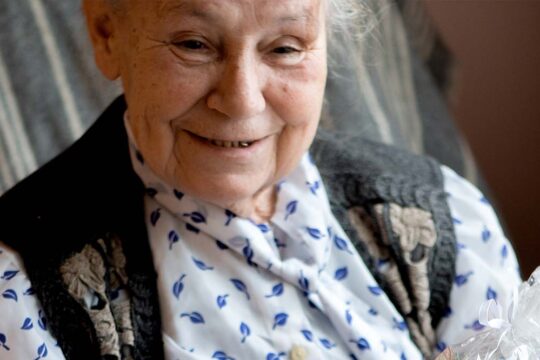
Alzheimer’s Home Safety Checklist
Dementia & Alzheimer’s Home Safety Checklist
Family members of parents with Alzheimer’s disease can make life more accessible and safe for their loved ones with a checklist. Too many dangers in the home can lead to falling, wandering, medication safety, and house security risks. The potential for problems can overwhelm caregivers as they want to make the home safe for their parents. Following a safety checklist can reduce risky situations and create a safe environment with smart tips below to make the job easier.
How do you keep Alzheimer's patients safe at home?
Alzheimer’s patients need a safe home to feel cozy and secure, which requires less likelihood of harm and provides ample attention. Make sure your house is hazard-free and not full of pitfalls waiting to happen. Here are some methods of reducing the dangers in the home of an Alzheimer’s patients home:
- Start with the entryway by removing all unused coats, shoes, scarves, bags, etc. Keeping this area clean ensures safer access to the bathroom and the living room or dining room, where they can sit down.
- Secure the bathroom by adding safety equipment like handrails, grab bars, and non-slip mats to keep you on your feet.
- Natural light during the day and night lights at night will help guide the way for sight-challenged people.
- Ensure all windows, doors, and other entry points are secured around the house.
- Remove tripping hazards like loose carpets or electrical wires from paths and floors. In the kitchen and bathroom, use non-slip mats.
- Make sure your home is equipped with smoke and carbon monoxide detectors, bed alarms, and motion sensors.
- To make it easier for the person with Alzheimer's to find what they need, label drawers and cabinets with pictures or text.
- Establish a regular schedule for daily tasks, including eating, taking medication, and going to bed to reduce agitation and disorientation.
- Ensure your Alzheimer's parent is never left alone for a long time by employing a caretaker if you need to leave. Elderly parent can’t live alone for their own safety; they should be living with someone who can care for them or in a care facility.
General Home Safety Tips for Alzheimer's and Dementia Patients
With so many potential problems in the home, it’s impossible to remember them all without a checklist. If possible, speak to someone who has cared for someone with Alzheimer’s to gain more understanding. Keep your loved ones with Alzheimer’s and dementia safe with these helpful home safety tips:
- Remove hazardous items such as sharp objects, heavy furniture, and anything that can cause us to trip and fall.
- Do not let gravity win! Install handrails, grab bars, and non-slip mats in your bathroom and other fall-prone areas.
- Keep medications locked away safe and administered at the correct time with an organized system.
- Reduce noise interference, as loud noises can lead to misunderstandings and accidents. Keep television noises down along with the radio and other volumes to ensure they can call for help when needed.
- The safety needs of people with Alzheimer's or dementia can change as their condition progresses. Keeping tabs on the home and the person's requirements can guarantee that they are not in harm's way.
- Put locks on all rooms that are no longer safe for your parents. For example, the laundry room has soaps and cleaning supplies that can cause harm.
If your elderly parent refuses assisted living or you are dealing with elderly parent memory loss these measures may not be enough. Now is the time to start researching alternative options to your parents living home alone.
Kitchen Alzheimer's Safety Tips
Cooking with Alzheimer’s can be a recipe for disaster. Avoid a kitchen catastrophe by following these safety tips:
- Keep sharp objects under lock and key, such as in a safe or a locking drawer.
- Do not let your kitchen become a minefield of obstacles; instead, keep it tidy with nothing out of place.
- Install safety devices like stove guards, anti-scald gadgets, and automatic shut-off switches to avoid any fiery mishaps.
- Make your appliances dumber. Smart technology can be difficult for Alzheimer's patients to use; instead, stick with the basics.
- Keep a watchful eye on the culinary artist to make sure they do not accidentally set the house on fire.
- Kick toxic substances out of the kitchen and lock them up in the garage or shed.
- Why bother cooking when you can outsource it to the pros? Plan ahead and let meal delivery services do the heavy lifting.
Bedroom Alzheimer's Safety Tips
Your Alzheimer’s parent needs a cherished sanctuary for sleep and relaxation to while away the hours. Start by keeping the bed low to the ground or using handrails to help them in and out of bed. Next, ensure the bedroom has clean pathways to get around the room.
Remove hazards like rogue cords, rebellious rugs, and furniture that just will not stay put.
Declutter as much as possible by removing anything not necessary to the function of the room. Also, illuminate the bedroom to prevent any unexpected trips and falls. Finally, keep an eye on the temperature of the room and the amount of blankets on the bed.
Bathroom Alzheimer's Safety Tips
The bathroom can be a treacherous place for those with Alzheimer’s. With a few smart tips, you can turn the bathroom into a fortress of safety. Follow these bathroom safety tips to avoid any unwanted dips or slips that can lead to injury:
- Install grab bars in the bathroom to avoid any slippery situations.
- Invest in some non-slip mats for your bathtub, shower, and bathroom floor.
- Use a shower chair to keep your parent steady and stable while in the shower.
- Remove unnecessary toiletries and clearly label those frequently used.
- Reduce the water heater temperature to prevent the patient from scalding themselves.
- Shed some light in the room with brighter bulbs or an extra lamp.
- Keep electrical items such as hair dryers and curling irons locked away to be used by someone else.
Also Read: How to Get Elderly Parents to Bathe
Living Room Alzheimer's Safety Tips
Alzheimer’s patients spend a lot of time in the living room reading, watching television, napping, visiting with friends and family, and much more. However, over the years, their room becomes cluttered with paraphernalia categorizing their lives. Start by reducing the number of items to a less overwhelming amount unlikely to cause falling or tripping hazards. As with every room, remove the number of obstacles, such as loose carpets, wires, and furniture.
Furthermore, make sure the room offers plenty of light for your parents to see. Often, seniors become attached to old furniture, offering them new seating options better for their back and bottom, and that’s easier to get in and out of when standing. Finally, remember to keep sounds down to a minimum so they can hear others and others can hear them.
Living Room Alzheimer's Safety Tips
The laundry room can be a real maze for those with Alzheimer’s disease. Too many machines with too many buttons and often too many clothes. Remove the havoc in the room by removing anything not needed. For example, eliminate excessive bottles of laundry spray, soap, and softener. Clearly label the bottles left in the room.
Additionally, put away laundry as soon as it’s washed and dried to reduce clutter. Put all the baskets in one spot and make sure they stack to take up less space. Remove excess clutter not used for laundry to improve walking lines. Also, label the washer and dryer to make pushing the right buttons easier. With these laundry room safety tips, you will be able to keep your loved ones with Alzheimer’s disease safe and sound while they do their laundry.
Garage & Basement Alzheimer's Safety Tips
The garage and basement are like a minefield of potential hazards for those with dementia or Alzheimer’s. Do not let your garage or basement become a danger zone! Start with the basics, such as removing obstacles and sharp objects, along with creating proper lighting. Decluttering is key, especially half-empty paint cans, chemicals, backs of potting soil or yard supplies that can fall, etc.
Next, it’s time for cleanup. Unplug and store powered items out of reach and take the ladder too to avoid tempting an Alzheimer’s parent from trying to reach a saw or other unsafe equipment. All harmful items need to be stashed out of reach, including hammers, nails, scissors, and other tools. It’s best to lock the entire garage or at least have a shed to lock all supplies in, such as gasoline, lawnmowers, cleaning supplies, etc.
Lastly, label everything like a pro and keep the noise down to create a peaceful sanctuary. Do not wait for a fire to start your own personal bonfire. Install smoke detectors, carbon monoxide detectors, and fire extinguishers to prevent any accidental pyrotechnics. Remember to check for chemicals in both the basement and the garage, as both can cause harm.
Basement stairs are often unsafe. Check the sturdiness of the unfinished wood and for potential traps for slivers, as those are difficult and painful to remove. Any unfinished projects should go to a friend or family member capable of finishing them to prevent your parent from attempting to finish them on their own. If they refuse to let the project leave, make sure to stay with them as they finish the work.
Related Articles
Sundowning in dementia refers to a state of increased confusion, agitation, and restlessness that occurs in the late afternoon and evening.
Graduating from hospice means that a patient who was previously enrolled in hospice care has improved to the extent that they no longer meet the criteria for hospice services.
Nausea is a common yet concerning symptom among elderly individuals, often signaling underlying health issues that require attention. As people age, they experience various physiological changes and are more likely to develop chronic health conditions, which can contribute to feeling nauseated.
Persistent fatigue in older adults is not a normal part of aging; it often indicates a deeper problem. Recognizing the signs of fatigue in the elderly and understanding the various causes help to manage this condition and improve the quality of life for older adults.
Our Services
Memory Care
Club Stellar
Dining
Activities

A Memory Care Community
4518 54th Street • San Diego, CA 92115
Phone: (619) 287-2920
LICENSE #374603625
Copyright © Stellar Care | Website Development by blue media marketing, Inc.




